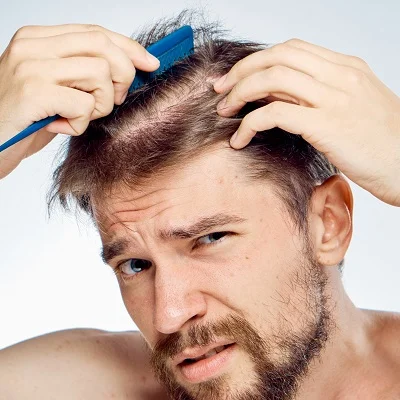Hair transplant procedures have become increasingly popular in recent years, with many individuals seeking effective solutions for hair loss. While the surgical technique and the skill of the surgeon play crucial roles in determining the success of a Hair Transplant in Dubai, various lifestyle factors also significantly impact the final results. Understanding these factors can help individuals optimize their post-operative care and achieve the best possible outcomes. This article explores the lifestyle elements that can affect hair transplant results, including diet, exercise, stress management, and smoking habits.
Diet and Nutrition:
Importance of a Balanced Diet
A well-balanced diet is fundamental for overall health and well-being, but it is especially critical for those undergoing hair transplant procedures. Nutrients play vital roles in promoting hair growth and recovery. Essential vitamins and minerals, such as vitamins A, C, D, E, and B-complex vitamins, as well as minerals like zinc and iron, contribute to hair health.
Key Nutrients for Hair Growth:
- Protein: Hair is primarily composed of protein, making it essential for hair growth. Including adequate protein sources, such as lean meats, fish, eggs, legumes, and nuts, can support the repair and regeneration of hair follicles post-transplant.
- Biotin: This B vitamin is known for its role in maintaining healthy hair and skin. Foods rich in biotin include eggs, nuts, and whole grains.
- Omega-3 Fatty Acids: Found in fatty fish, flaxseeds, and walnuts, omega-3 fatty acids can improve scalp health and promote hair growth by providing essential nutrients to hair follicles.
Hydration:
Staying hydrated is another vital aspect of maintaining healthy hair. Water is crucial for transporting nutrients throughout the body, including the hair follicles. Dehydration can lead to dry, brittle hair and may hinder the healing process after a hair transplant.
Physical Activity and Exercise:
The Role of Exercise:
Regular physical activity not only promotes overall health but also enhances blood circulation, which is essential for delivering nutrients and oxygen to hair follicles. Good circulation helps improve hair growth and recovery post-transplant.
Avoiding Excessive Strain:
While moderate exercise is beneficial, it is essential to avoid strenuous activities immediately following a hair transplant. High-impact exercises, weightlifting, or any activities that involve bending or straining can increase blood flow to the scalp and may dislodge newly implanted hair follicles. Patients should follow their surgeon's advice regarding the appropriate time to resume intense workouts.
Stress Management:
Understanding the Impact of Stress:
Chronic stress is known to contribute to hair loss, and it can also negatively affect the healing process after a hair transplant. High-stress levels can lead to hormonal imbalances that may hinder hair growth and recovery.
Techniques for Reducing Stress:
- Mindfulness and Meditation: Practicing mindfulness and meditation can help reduce stress and promote relaxation. Techniques such as deep breathing exercises, yoga, and guided imagery can help calm the mind and body.
- Adequate Sleep: Quality sleep is crucial for physical recovery and stress management. Lack of sleep can exacerbate stress and negatively impact overall health, including hair health. Aim for 7-9 hours of quality sleep each night to support the healing process.
- Social Support: Engaging with friends and family and seeking support from loved ones can help alleviate stress. Connecting with others who have undergone similar procedures can also provide valuable insights and encouragement.
Avoiding Harmful Habits:
Smoking:
Smoking is a detrimental habit that can adversely affect hair transplant results. Nicotine restricts blood flow to hair follicles, reducing the supply of essential nutrients and oxygen necessary for healthy hair growth. Additionally, smoking can impair the body’s healing process, leading to longer recovery times and suboptimal results.
Alcohol Consumption:
Excessive alcohol consumption can lead to dehydration and nutrient deficiencies, both of which can negatively impact hair health. While moderate alcohol intake may not have a significant effect, it is advisable to limit consumption, especially in the weeks leading up to and following a hair transplant.
Avoiding Heat and Chemicals:
Post-transplant, it is crucial to avoid exposing the scalp to excessive heat and harsh chemicals. This includes avoiding saunas, hot tubs, and chemical hair treatments, as they can irritate the scalp and hinder healing. Gentle hair care products and practices should be prioritized during the recovery period.
Following Post-Operative Care Instructions:
Adhering to Surgeon Guidelines
One of the most important factors affecting hair transplant results is the adherence to post-operative care instructions provided by the surgeon. Following these guidelines ensures the best possible outcome and minimizes the risk of complications.
Recommended Practices:
- Proper Cleaning: Keeping the scalp clean and free from debris is essential for preventing infection. Patients should follow the recommended washing schedule and use gentle, non-irritating shampoos.
- Avoiding Direct Sunlight: Protecting the scalp from direct sunlight is crucial during the healing process. Wearing a hat or using sunscreen on exposed areas can prevent sunburn and damage to the newly implanted follicles.
- Avoiding Touching the Scalp: Patients should refrain from touching, scratching, or picking at the transplanted area, as this can dislodge grafts and lead to poor results.
Conclusion:
Achieving optimal results from a hair transplant involves more than just the surgical procedure itself; it also requires careful consideration of various lifestyle factors. A balanced diet rich in essential nutrients, regular exercise, effective stress management, and the avoidance of harmful habits are all critical components that can significantly influence hair growth and recovery. By paying attention to these factors and following post-operative care guidelines, individuals can maximize the success of their hair transplant and enjoy the benefits of a fuller head of hair. Taking proactive steps in one’s lifestyle can make a substantial difference, ultimately leading to enhanced satisfaction and confidence in the results.





Comments